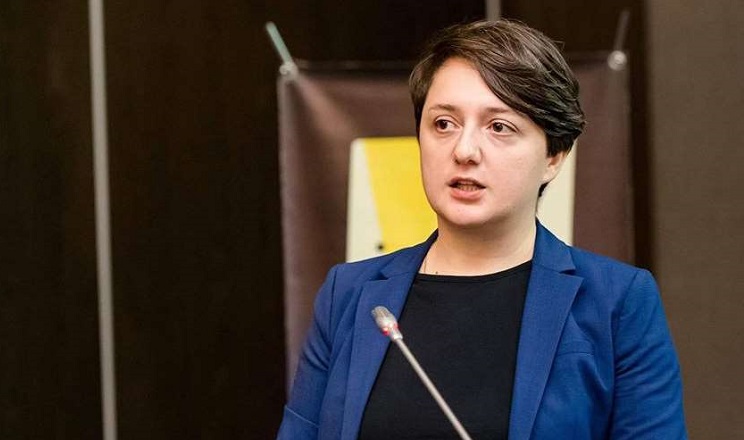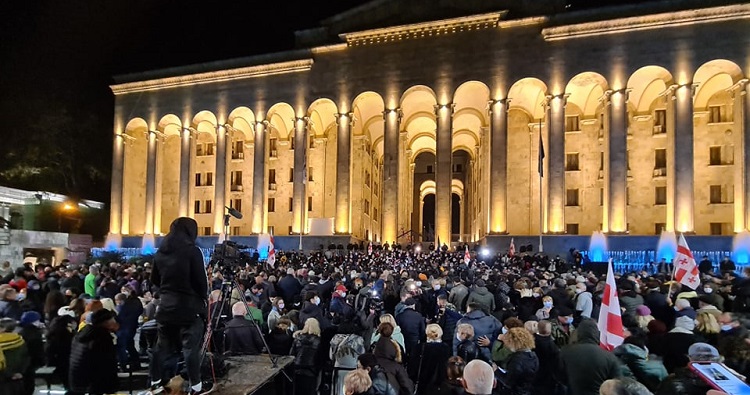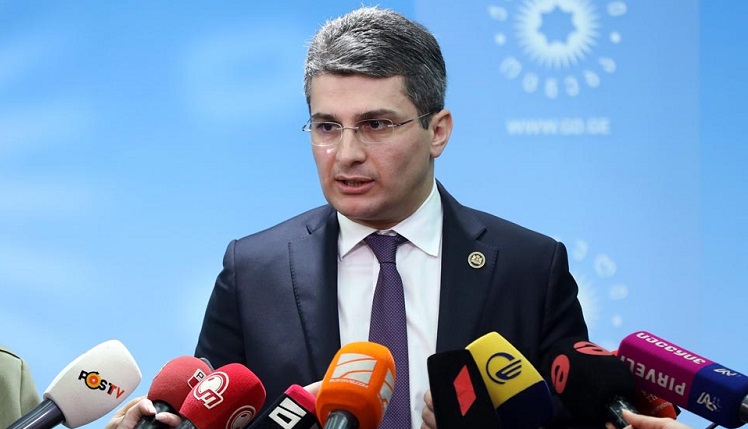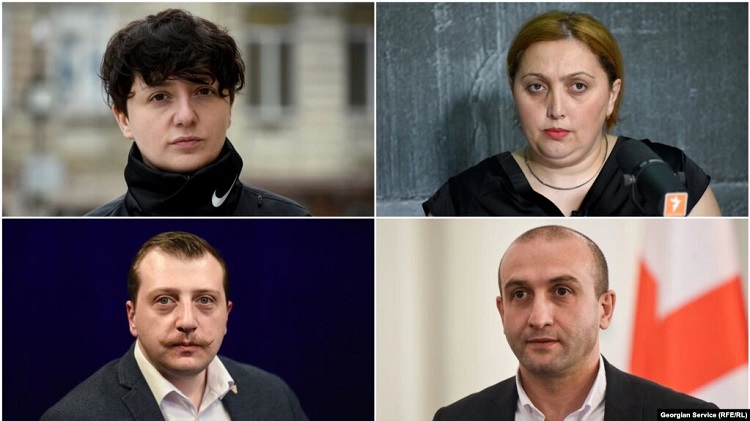Top candidate for public defender has “positive expectations”, says process “transparent”

Ana Abashidze currently serves as a managing director of Partnership for Human Rights organisation. Photo: Imedi TV
Ana Abashidze, the managing director of Partnership for Human Rights organisation and civil society organisations’ nominee for the position of public defender, on Thursday said she had “positive expectations” and praised the “unprecedented engagement and transparency” in the selection process of the new ombudsperson, a part of the European Union’s conditions to grant Georgia the membership candidate status.
Leading the list of candidates for the post - which was published by the parliament’s nine-member working group last week - Abashidze said despite her presence at the top of the list, other “experienced and skilful” candidates also had chances to take the position set to become vacant after the term of incumbent Nino Lomjaria expires in December.
I have been supported by a number of domestic organisations, and I am grateful for this. However, there are other candidates who are quite worthy and experienced [for the post], so I do not feel that only top candidates should be voted on. However, I think that I am one of those who have exactly the qualities and experience that would be useful to this institution”, Abashidze said.
Who are the top candidates for the ombudsperson position?
The parliamentary working group, created in September by the decision of speaker Shalva Papuashvili, has evaluated 19 candidates based on the predefined criteria of “integrity, high reputation, impartiality and independence”, as well as professional knowledge and practical experience in the field of human rights and fundamental freedoms.
 At least 90 MPs should vote for the new public defender to be elected. Photo: Nino Alavidze/Agenda.ge.
At least 90 MPs should vote for the new public defender to be elected. Photo: Nino Alavidze/Agenda.ge.
Each of the nine committee members - coming from the civil sector and academic fields - was asked to rate the candidates on a ten-point scale per each criterion.
On the list released on October 13, Abashidze was followed by Nazi Janezashvili, a former non-judge member of the High Council of Justice and current head of the Georgian Court Watch non-governmental organisation, Nugzar Kokhreidze, the head of the research-intellectual club Dialogue of Generations and Giorgi Burjanadze, the deputy public defender. The top four candidates had been previously nominated by civil society organisations.
The working group’s assessments work only as a recommendation before the parliament starts considering candidates if there are at least seven of them presented, with MPs may select any of the 19 candidates.
Why does the selection process of the new public defender matter?
Selecting an “unbiased” public advocate is one of 12 conditions outlined by the European Council for granting Georgia the membership candidate status next year. The approval of the new public advocate requires at least 90 votes in the 150-member parliament, which means the ruling Georgian Dream party - which currently has 75 MPs - and the opposition would need to cooperate for the selection.
 The ruling party has conceded the opportunity of nominating a candidate to the opposition. Photo: Imedi TV.
The ruling party has conceded the opportunity of nominating a candidate to the opposition. Photo: Imedi TV.
What happened earlier?
The ruling party said on August 31 it had registered amendments for the updated criteria for evaluation and selection of public defender candidates in accordance with the EU conditions. Mamuka Mdinaradze, the head of the ruling party in parliament, said the party would concede the opportunity of nominating a candidate to the opposition.
On September 9 the parliament adopted the changes and the legislative body’s chairperson was put in charge of creating a nine-member working group to evaluate candidates for the post.
On September 30, the parliament published the list of individuals who had submitted their candidacy for the post.
 Three parliamentary opposition parties say they would nominate four candidates.
Three parliamentary opposition parties say they would nominate four candidates.
What are the parties' plans?
The Citizens parliamentary opposition, with two MPs, said earlier this week they would nominate all 19 candidates for the vote, while the United National Movement, Strategy Agmashenebeli and Lelo opposition parties have said they would back Abashidze, Janezashvili, Burjanadze and Girchi party’s Iago Khvichia.
The ruling party’s Mdinaradze on Monday said GD would be "consensus-oriented" in the process, and noted the “only disagreement that could be on our part is if any of the candidates presented by them [by opposition] have been observed so far to be involved not in protection of rights but in political activities”.
 Tweet
Tweet  Share
Share